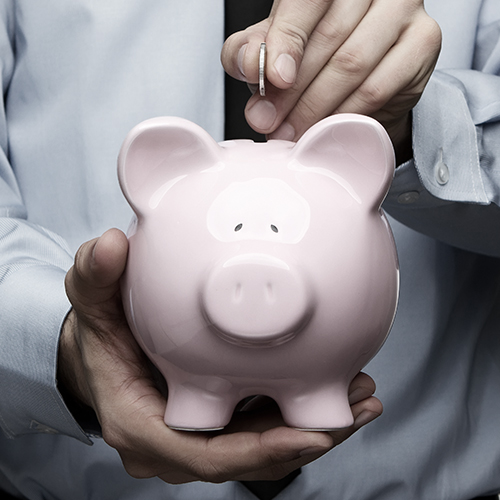
Many people may only concentrate on reducing their debts when the economy begins to slow down. However, it may be smart to practice sound debt management even when times are good. A healthy economic boom may provide you with greater financial resources to pay down existing expenses and allow you to help steady your financial “ship” with gains earned from increased investment opportunities. Here are a few tips to help you get out, and stay out, of debt¾in both strong and weak economic times:
- Cancel all credit cards except one and pay the balance off monthly. Eliminating extra sources of credit may help curb your spending appetite. Using only one credit card will also help prevent you from “maxing out” your credit line.
- Carry a debit card instead of a credit card. A debit card offers the same convenience of a credit card without the added indebtedness. Purchases are immediately deducted from your bank account, so you must have the funds available to cover the expense. Thus, a debit card may help prevent overspending and promote an affordable lifestyle.
- Avoid using credit for items that depreciate in value. Try to restrict yourself from purchasing items such as clothing, dining, groceries, and vacations on your credit card. These goods are nonincome-producing, and may cost you more in accrued finance charges if you are unable to pay down your outstanding balance each month.
- Limit monthly installment payments to 10 percent of income. Debt repayment must be affordable to be effective. To avoid drowning in a sea of debt, you may want to consider limiting monthly installment payments on debt to 10 percent of your spendable income.
- Comparison-shop for the lowest interest rate. Even a small difference in interest rates can make a big difference in the aggregate amount of interest you will pay over time on existing balances. You may find information regarding credit card offers listed in various financial newspapers, pamphlets, and magazines, as well as on the Internet.
- Set aside a cash reserve. A secret stash of cash may actually help you pay down your debts more efficiently. Each time an emergency arises—the muffler goes, the washing machine breaks, or a family member needs a loan—you may be able to avoid borrowing additional funds at a higher interest rate by using your reserve to handle the crisis.
- Consider debt consolidation carefully. Borrowing your way out of debt may also be fiscally inappropriate for your situation. Debt consolidation loans reduce your total monthly payment by spreading your debt over a longer payment term. Unfortunately, this method may cost you more in interest charges that accrue over time.
- Use credit wisely. Accessible credit can be helpful. Using your credit card responsibly—such as by purchasing assets that appreciate in value or produce an economic gain or return that exceeds the interest rate charged for using the credit card—
may help you navigate through some rough financial waters.
Charting Your Own Course
One of the chief causes of financial failure is credit abuse. Easy, accessible credit may tempt many people to “buy now and pay later.” Credit card purchases that offer instant gratification with “no money down” will sink any ship if you lose track of spending. Reining in excessive spending habits may be difficult, but a little fiscal discipline can help you clear your decks of debt and prepare for smooth sailing into a sound financial future.